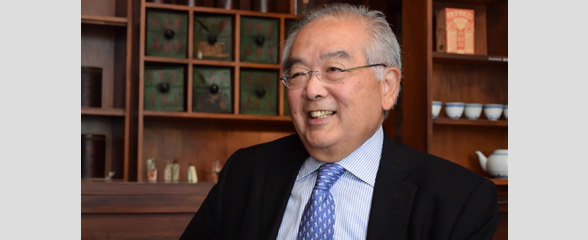 | Theodore Chao, born in Shanghai, China, immigrated to Virginia and grew up in Hampton at a young age. He begins the interview by sharing his connection to the MOCA which he was first introduced to by his mother. He continues to speak of his mother colorful upbringing as a Virginia native of Toisan heritage and touches on her educational background in NYC where she met his father. He describes his father tumultuous journey, escaping reeducation camp in Guangdong, eventually reuniting with his family in America. he recounts his life growing up in Virginia. He talks about his uncle Ernest, who served in the US army and was in Nanjing during the end of WWII. Theodore and his family story ends with his reflection on his children experience growing up Chinese American in Summit, New Jersey. He finishes with several anecdotes about maintaining a connection with his Chinese roots, the language, and the tight knit personal relationships that have shaped his and his family experiences. | 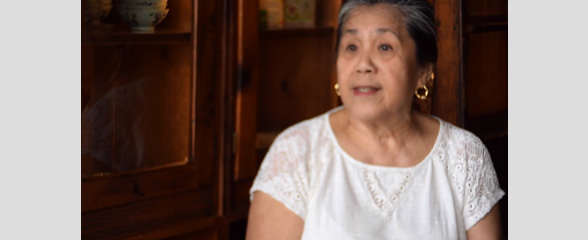 | Virginia Moy Burcher talks about her family journey to the US from Toisan. Her family then moves to New York and establishes a large series of businesses in Chinatown. She goes on to talk about growing up in the city and helping out at the various businesses before going to Hunter college to pursue education. She marries a man from Bermuda and talks about raising a biracial child and interracial marriage. | 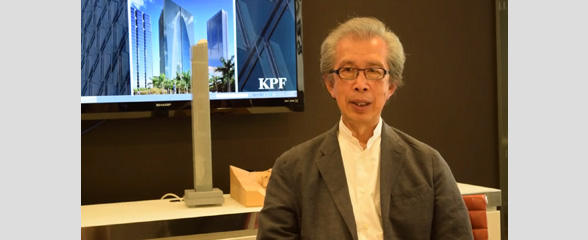 | This interview follows the life and career of William Louie, an esteemed Chinese-American architect heading Kohn Pederson Fox Associates, a leading global urban architectural firm originally based in New York. A native of the city, he grew up between his family laundry in Southern Bronx and the Lee family association in Chinatown, during which he attended both public school and Chinese school from a young age. He went on to train at the Institute of Design and Construction, where he was recruited into an architectural firm as a draftsman, and met the group of esteemed fellows who would then found KPF several years later. Now a design architect, he has directed projects all over the world, from his hometown of New York, to Hong Kong, and to Brazil. Bill has spearheaded KPF entry into the Asia market, which as of today, totals 50% of the firm’s revenue. While he stays humble, attributing much of his success to his parents and his wife encouragement, Bill has made tremendous contributions to the urban architectural landscapes of major cities across the globe. | 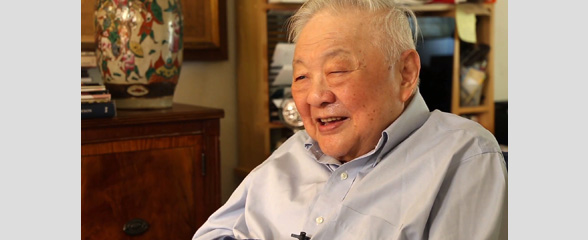 | For over forty-five years, Ming Cho Lee has served on the faculty at Yale School of Drama, including as the co-chair of the design department. As a recipient of the National Medal of Arts in 2002 and the Tony award for lifetime achievement in 2013, Ming Cho Lee is one of the most acclaimed living set designers in the U.S. He is originally from Shanghai but moved to Hong Kong during his childhood, and went to the United States to attend Occidental College in 1949. He then attended UCLA and moved to New York City to pursue his career. In this interview, Lee discusses the impact of his childhood experiences, especially those of his mother taking him to theater performances and movies, his time attending Occidental College, and his determination to become a major theater set designer. He credits Jo Mielziner and Boris Aronson as his teachers who both deeply influenced his career. | 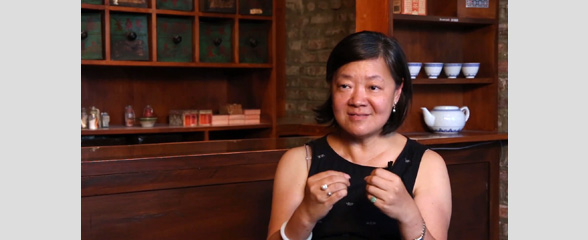 | Alice Mong is Executive Director of Asia Society Hong Kong Center (ASHK). Prior to joining the Asia Society HK, Ms. Mong worked for almost a decade in New York, whereas Director of the Museum of Chinese in America (MOCA) she was responsible for transforming MOCA from a New York Chinatown institution to a leading national museum. Prior to MOCA, Ms. Mong headed up the Committee of 100, a non-profit membership organization founded by world-class architect I.M. Pei and renowned cellist Yo-Yo Ma. Under the leadership of Ms. Mong at the Committee of 100, the organization increased its presence in Greater China and significantly expanded its influence on U.S.-China relations and advanced the full participation of Chinese Americans in all areas of life. As Executive Director of Asia Society in Hong Kong, Ms. Mong has overseen Asia Society Hong Kongs presentation of No Country: Contemporary Art for South and Southeast Asia, the inaugural exhibition in Asia of the Guggenheim UBS MAP Global Art Initiative. | 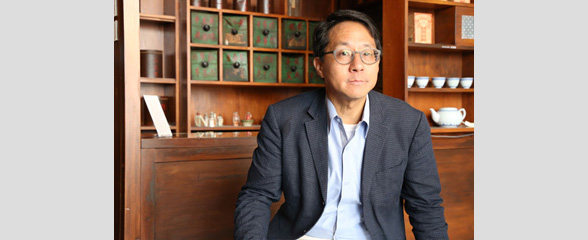 | Ambassador Curtis S. Chin has been in public service for a number of years and comes from a military family. He has served as ambassador of the Asian Development Bank under both George W. Bush and Barack Obama. He spent his formative years in Virginia, Washington and went to Northwestern for under grad and earned a masters of MPPM at Yale School of management. Both his father and mother families come from Toishan, in Southern China. | 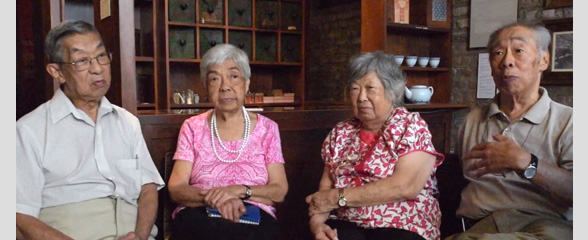 | In this interview with MOCA, four siblings from the Lui Family sit down to discuss their childhood in early 20th century Chinatown. Sisters, Effie and Fannie, begin with a description of their family members and their life in a tenement apartment. They also explain the root of their Christian faith and the role of ministers as community social workers. The sisters then examine the tensions between the Chinese and Italians in the neighborhood and the development of their Chinese American identity. Brothers, Harold and Ronald, then describe their parents’ immigration experience and their siblings’ educations. They also further discuss the importance of the Church in their lives and the challenge of paper son identities. The four siblings ultimately join to discuss the effect on World War II on their family and the conflicts between their Chinese identity and strong Christian faith. They close the interview with a discussion of the importance of family and faith in leaving behind value and a legacy. | 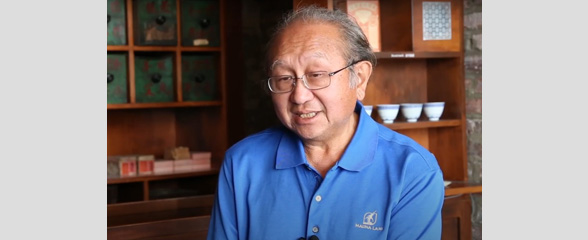 | Edward Chin used to be the son of Sun Sing Theatre owner, an engineer, and a lawyer. Now, he enjoys his retirement and travels around the world to play golf with his friends. In this interview, Chin discusses his father’s movie business, family history about the paper son, his schooling experience, careers in law firms, ethnic identity, and thoughts about racism. | 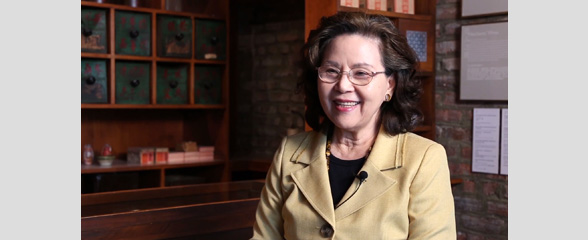 | Various members of the Kung family recount their journey to the US and how they adapted to American culture. They further explore the changes in the Chinese community from when they first arrived to current day. | 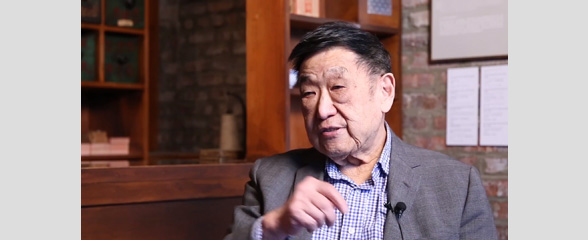 | Tina Yao & William Yao talk about their immigration life experience, their family tradition and the cultural legacy they want to leave to their offspring. William Yao talks about his childhood in Shanghai, his father who worked in the silk business died of a stroke when he was young. Although three of her five children lived with her brother it was still hard for William mother to raise her children, financially. After WWII William went to the Shanghai provincial State High School, later he left Shanghai to look for a job. His mother’s brother asked him if wanted to come to New York through his newspaper company. His first job had bad pay and that’s when he applied to Pan Am, where he stayed. Later on when his children were growing up they went and lived in Flushing, which was convenient, had mahjong and Chinese food places. His wife Tina Yao lately joins his oral history. |









